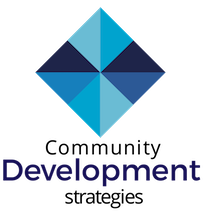The FY 2018 omnibus spending package signed by the President last week includes a 10% increase in HUD spending:
- Housing Credit 12.5% allocation increase for four years (2018-2021).
- Housing Credit Income Averaging, on a permanent basis, which allows the 60% AMI ceiling to apply to the average of all apartments in a project rather than each individual Housing Credit apartment.
- Public Housing Operating Fund $4.55B to support public housing operation and management. This is $150M more than funding for FY 2017. The omnibus does not include any of the policy proposals contained in the President’s 2018 budget, including the implementation of mandatory minimum rents, elimination of utility reimbursements, or rental increases.
- Public Housing Capital Fund $2.75B for CFP, $808.5M more than FY 2017 funding.
- Capital Fund Set-Asides Emergency Capital Needs: $21.5M for grants to PHAs for emergencies and natural disasters, excluding presidentially declared emergencies. This includes a set-aside of $5M reserved for safety and security emergencies. This is level with FY 2017 funding. Jobs-Plus Initiative: $15M directly for Jobs-Plus, level with FY 2017. The direct funding is not limited to providing participant incentives, it can also be used to support the service component of the program. Resident Opportunities and Self-Sufficiency (ROSS): $35M for ROSS, level with FY 2017 funding. REAC and Receiverships: $8.3M for Public Housing Financial and Physical Assessment activities, $1.7 million less than FY 2017 funding.
- Public Housing Subsidy Flexibility Carries forward the FY 2015 Appropriations provision increasing the limit on fungibility for PHAs with 250 or more units of public housing to transfer up to 25% of their annual Capital Fund grant to operations. Through the Housing Opportunity Through Modernization Act (HOTMA), PHAs are also allowed to transfer 20% of their operating subsidy to their capital fund grant.
- Family Self-Sufficiency (FSS) Maintains level funding for the FSS program at $75M, and like previous Appropriations Acts, allows owners of multifamily Section 8 project-based rental assistance (PBRA) to fund coordinators out of their residual receipts.
- Rental Assistance Demonstration (RAD) Expands the current 225,000 unit cap on Public Housing conversions to 455,000 units and changes the Sept. 30, 2020 deadline for submission of RAD applications under the first component to Sept. 30, 2024.
- Choice Neighborhoods Initiative (CNI) $150M for CNI, $12.5M more than FY 2017 funding. The omnibus also includes language that requires not less than $75M of the total CN funding to be awarded to PHAs. The omnibus also allows for no more than $5M to be provided as grants to undertake local planning with input from residents and the community. Language also allows HUD to obligate any available un-obligated balances made available under CN until Sept. 30, 2018.
- PHA Employee Compensation Includes language prohibiting PHAs from using any Tenant-Based Voucher, Operating Fund, or Capital Fund dollars to pay any amount of salary above the base rate of pay for level IV of the Executive Schedule for FY 2018, or $164,200. This restriction includes salary as well as bonuses or other incentive pay.
